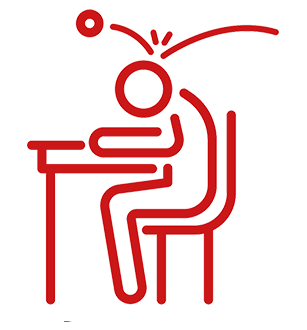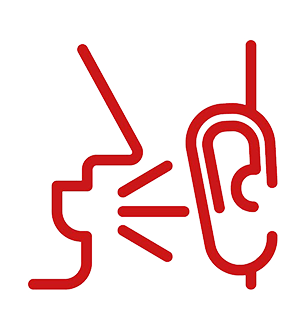Why Choose Life Skills Education for your Children?
Are you looking to equip your child with essential Life Skills that will empower them to make safe and confident decisions? Life/Social Skills Education is a vital component of a child’s development, focusing on topics such as personal safety, healthy relationships, risks, and consequences. We use interactive workshops, role-playing, and peer-to-peer learning to help children enhance their decision-making skills, boost their self-esteem, and improve communication abilities.
Find out why Life/Social Skills Education is important for your children and how our programs are designed to fulfil their needs.
Key Takeaways:
- Empower your children to make safe and confident decisions through life skills education.
- Equip your children with the knowledge to understand risks and navigate risky situations.
- Choose a life skills education program focusing on personal safety, healthy relationships, risk assessment, and independent decision-making.
- Life skills education is for all young people, not just those at risk.
Education, Children and Violence.
The Youth Endowment Fund have produced their practice guidance report for school, college and alternative provision leaders on how to reduce children’s involvement in violence. This report offers 5 key findings, including (3) developing children’s social and emotional skills and (5) using proven, evaluated approaches.
‘There has been a noticeable improvement in playground behaviours, with improved levels of conflict resolution without staff intervention. Lunchtime staff noticed that pupils are using techniques to deal with stressful situations amongst themselves, being more sensitive to each other, and not allowing small incidents to escalate. This is all thanks to Life Skills.”
What is Life Skills Education?

Life Skills Education aims to equip children with essential knowledge and tools to navigate life’s challenges confidently. It focuses on enabling young individuals to make informed decisions in various risky situations, promoting resilience and independence. By instilling confidence and arming them with problem-solving skills, it enables children to tackle uncertainties with a sense of self-assurance.

This education enables young people to assess risks critically, fostering a sense of responsibility in their decision-making processes. Through practical scenarios and interactive learning experiences, children are better equipped to handle challenges and adversity proactively.

Through life skills education, children learn the significance of effective communication, empathy, and adaptability, which play key roles in shaping their responses to risky situations.
Why is Life Skills Education Important for Children?
Life Skills Education plays a crucial role in the development of children by helping them understand risks, consequences, and the impact of their decisions. It provides a foundation for building resilience and confidence in navigating life’s challenges.
By equipping children with essential life skills, we enable them to make informed choices and better assess potential risks in various situations. Through practical learning experiences and interactive activities, children can critically analyse circumstances and identify potential outcomes, boosting their decision-making abilities. It helps foster a sense of responsibility and accountability, teaching children to take ownership of their actions and understand how those actions can influence their own lives and the world around them.
It Empowers Children to Make Safe and Confident Decisions
Life Skills Education enables children to make safe and confident decisions by providing them with the necessary knowledge and skills to assess risks and choose appropriate actions.
Children learn to evaluate potential dangers in various situations and develop critical thinking abilities to prioritise safety. This education equips them with tools to identify risks, weigh consequences, and determine the best course of action to minimise harm. By enhancing their decision-making skills, children not only become more self-assured in their choices but also feel enabled to navigate challenges with resilience. Therefore, Life Skills Education plays a crucial role in fostering a sense of autonomy and competence in young individuals.
Teaches Children to Understand the Risks
By focusing on teaching children to understand risks, we can educate them about potential dangers and consequences associated with different, real-life situations. This equips children with the tools to recognise warning signs, make informed decisions, and react effectively in various scenarios. Through Life Skills Education, young people develop critical thinking skills and learn to assess risks objectively, enabling them to navigate challenging situations with confidence and resilience. By understanding the implications of their actions, children can proactively manage risks and anticipate potential hazards, ultimately fostering a sense of responsibility and self-awareness.
Equips Children with Tools to Navigate Risky Situations and Personal Stress
Life Skills Education equips children with practical tools and strategies to recognise risky situations effectively, enabling them to make informed choices and handle challenging scenarios. One of the key aspects of Life Skills Education is teaching children how to recognise and assess potential risks in different situations. Children learn to evaluate risks and consequences before making decisions by developing their critical thinking and problem-solving abilities.
Moreover, it focuses on building resilience in children, helping them bounce back from setbacks and adapt to changing circumstances. Through activities that promote self-awareness and emotional regulation, children develop the confidence and skills to manage stress and challenges effectively.
Promotes Independence and Self-Sufficiency
Life Skills Education promotes independence and self-sufficiency in children by fostering confidence and competence in handling various life challenges and decision-making scenarios.
By equipping young minds with essential tools and knowledge, we can enable them to navigate the complexities of daily life with grace and adaptability. Resilience becomes their ally, enabling them to bounce back from setbacks and face adversities head-on. Through practical activities, role-playing, and interactive learning experiences, children not only learn to communicate effectively but also build empathy and understanding towards others.
These skills not only contribute to personal growth but also lay a strong foundation for future success in both academic and professional realms.
What Topics Are Covered in Life Skills Education?
Life Skills Education covers a range of important topics, including personal safety, healthy relationships, and understanding the risks and consequences of their actions. When individuals are equipped with life skills, they are better prepared to navigate challenging situations and make informed decisions.
Personal safety knowledge enables individuals to protect themselves from potential harm and dangers in various settings, such as knife crime and substance misuse-related incidents. Understanding the dynamics of healthy relationships fosters positive interactions with others, promoting emotional well-being and sustainable connections. Risk assessment skills allow individuals to evaluate potential dangers and make calculated decisions to mitigate hazards and recognising the consequences of their actions helps individuals understand the impact of their choices on themselves and those around them.
Risks
Life Skills Education educates children about various risks they may encounter, enabling them to make informed decisions and understand the potential consequences of their actions.
This educational approach equips young individuals with the tools to navigate complex situations confidently. By fostering critical thinking and problem-solving skills, Life Skills Education enables them to assess risks objectively and develop strategies to mitigate them. Our SKILL Decision-Making Model is central to this process as learners learn to weigh the pros and cons of different choices. Through interactive lessons and real-life scenarios, students grasp the significance of their decisions and the ripple effects they can have on their well-being.
Personal Safety
Personal safety is a fundamental aspect of Life Skills Education, focusing on teaching children strategies to protect themselves from harm and understand the consequences of unsafe behaviours.
Through personal safety education, children learn to assess potential risks in various situations and make informed decisions to safeguard themselves. It provides them with crucial knowledge on handling emergencies, such as knowing who to contact in case of danger or understanding when to seek help from a trusted adult. By instilling a sense of awareness and preparedness, children can develop the confidence to address challenging situations with resilience and critical thinking skills.
Healthy Relationships
Life Skills Education emphasises the development of healthy relationships by nurturing effective communication, empathy, and social skills among children.
Effective communication plays a pivotal role in fostering understanding and connection among individuals. Children can navigate social interactions with confidence and respect by learning to express thoughts clearly and actively listen to others. Moreover, empathy is a crucial component that enables individuals to relate to others’ emotions, perspectives, and experiences, promoting compassion and cooperation. Honing social skills equips children with the tools to interact with less friction in various settings, encouraging teamwork, conflict resolution, and mutual respect.
Consequences
Understanding consequences is a key component of Life Skills Education, as it helps children connect their actions with potential outcomes, fostering responsible decision-making.
Children learn the importance of thinking before acting by comprehending the effect on themselves and others of their choices. This awareness cultivates a sense of responsibility – gaining the skills to weigh different options and anticipate the possible results. Ultimately, Life Skills Education enables young learners to make informed choices, paving the way for a future where they confidently navigate life’s challenges with prudence and understanding.
How is Life Skills Education Taught?
Life Skills Education utilises interactive workshops, role-playing scenarios, hands-on activities, and peer-to-peer learning as effective teaching methods to engage children in practical learning experiences.
These diverse teaching methods help students develop essential life skills such as decision-making, problem-solving, communication, and emotional intelligence dynamically and engagingly.
Interactive Workgroups
- Workshops encourage active participation, fostering teamwork and collaboration among students.
These workshops offer a dynamic platform for students to participate actively, facilitating a deeper understanding of crucial life skills such as communication, problem-solving, and decision-making.
Young learners can develop their interpersonal skills, empathy, and resilience through engaging activities and group discussions. The interactive nature of these workshops fosters creativity and critical thinking, enabling students to explore different perspectives and solutions collaboratively.
Role Play
- Role-playing scenarios allow children to practise real-life situations, enhancing their critical thinking and empathy.
Role-playing and scenarios are integral to Life Skills Education, allowing children to practise decision-making, risk assessment, and problem-solving in simulated environments. It engages children in dynamic situations where they must make choices, face consequences, and interact with others, mirroring the real-life experiences of young people. Through these immersive activities, they develop critical thinking skills, empathy, and emotional intelligence; these activities use various videos and animations of our DAaRT Crew to enable learning in a ‘to kids from kids’ approach to learning. provide a safe space for children to experiment with different approaches, learn from failures, and build confidence in their decision-making abilities. By applying knowledge in realistic settings, they internalise concepts more effectively and develop practical skills that are transferable to various aspects of their lives.
Real Word Scenaris
- Hands-on activities provide real-world scenarios to learn practical skills, reinforcing concepts through experiential learning.
Hands-on activities form a vital component of Life Skills Education, enabling children to engage in practical learning experiences that enhance their skills and confidence. Children are encouraged to actively participate in learning, allowing them to develop critical thinking, problem-solving, and communication skills in a safe, practical setting. These activities promote experiential education, which has been shown to be highly effective in fostering long-term retention and application of knowledge. By engaging in hands-on tasks, children can better understand abstract concepts and apply their learnings to real-life situations.
To Kids from Kids
- Peer-to-peer learning creates a supportive environment where students learn from each other’s experiences and perspectives, promoting mutual understanding and respect.
Peer-to-peer learning fosters collaboration and social skills development in Life Skills Education as children interact, share experiences, and learn from one another. Encouraging students to engage in peer-to-peer learning not only enhances their cognitive abilities but also promotes empathy and understanding among peers. This approach allows children to build confidence in their communication skills through active participation in group discussions and cooperative activities. By sharing diverse perspectives and insights, students can broaden their knowledge horizons and develop a deeper understanding of various topics.
What Are the Benefits of Life Skills Education for Children?
Life Skills Education offers numerous benefits to children, including improved decision-making skills, increased confidence, better communication abilities, and enhanced resilience in handling personal stress and challenges.
Engaging in Life Skills Education activities not only equips children with practical tools but also fosters critical thinking and problem-solving abilities essential for navigating various aspects of life. Through experiential learning, children are given the opportunity to explore real-world scenarios, make informed decisions, and learn how to adapt to different situations with ease. This, in turn, helps them build self-esteem and interpersonal skills while developing a deeper sense of empathy towards others.

Improved Decision-Making Skills
Life Skills Education enhances children’s decision-making skills by teaching them to evaluate risks, consider consequences, and make informed choices based on critical thinking.
This form of education equips children with a toolbox of skills that are essential for navigating the complexities of the world around them. By fostering qualities such as resilience, problem-solving, and effective communication, Life Skills Education lays a strong foundation for children to approach challenges with confidence and adaptability.
In addition, it enables them to identify and assess potential risks, enabling them to weigh options, anticipate outcomes, and ultimately make decisions that align with their values and goals. Through this process, children learn to prioritize their objectives, think critically, and take ownership of their choices, instilling a sense of accountability and self-reliance that serves them well throughout their lives.

Enhanced Ability to Handle Personal Stress and Challenges
Life Skills Education equips children with coping strategies and resilience to handle personal stress and challenges effectively, enabling them to navigate difficulties with confidence and adaptability.
By integrating Life Skills Education into formal curriculum, schools enable young learners to develop vital abilities such as emotional regulation, problem-solving, and effective communication. This proactive approach fosters a strong foundation for mental well-being and equips children with essential tools to navigate the complexities of their personal lives. Teaching mindfulness techniques and fostering self-awareness through interactive sessions not only enhances their ability to manage stress but also promotes positive self-image and interpersonal relationships.
- By instilling resilience in children from a young age, educators play a critical role in preparing them to face life’s uncertainties and setbacks with courage and determination.
- Through a structured Life Skills Education programme, students learn the importance of adaptability and flexibility, enabling them to cope with unexpected challenges and bounce back from failures with improved confidence.

Better Communication and Interpersonal Skills
Life Skills Education focuses on improving children’s communication and interpersonal skills, fostering effective interactions, empathy, and understanding in social settings. By introducing children to various aspects of communication, such as active listening and clear expression of thoughts and feelings, Life Skills Education equips them with the tools to navigate complex social scenarios with confidence.
The emphasis on empathy helps young individuals develop a deeper understanding of others’ perspectives and emotions, promoting a more inclusive and harmonious environment. The focus on relationship building encourages children to cultivate meaningful connections, fostering a sense of belonging and mutual respect within their social circles.

Increased Confidence and Self-Esteem
Life Skills Education boosts children’s confidence and self-esteem by providing them the knowledge and tools to navigate challenges, make decisions, and overcome obstacles with resilience.
Children equipped with life skills are better prepared to cope with the ups and downs of life, fostering a sense of independence and self-reliance. Through this education, youngsters learn essential competencies such as communication, critical thinking, and emotional intelligence, which are instrumental in shaping their overall well-being. These skills not only help them in cross-curricular activities but also their social interactions, enabling them to build relationships and express themselves effectively.
Helping children make safe and confident decisions in risky situations.
In the context of:

Online Harms
Covered in our Web Warriors programme.

Sexting
Covered in our Web Warriors and Primary programmes.
Frequently Asked Questions
This is where you will find answers to the usual questions. If you have any other questions, don’t hesitate to contact us:
support@lifeskills-education.co.uk – or – 0300 111 3273.
Questions
Life skills education is an approach to teaching that focuses on equipping children with the necessary skills to navigate life and make informed decisions. It covers a range of skills such as problem-solving, critical thinking, communication, and decision-making. It is important for children because it prepares them for real-life situations and empowers them to make safe and confident decisions.
Life skills education benefits children in numerous ways. It helps them develop essential life skills that will be useful in adulthood, such as risk management, resilience, and conflict resolution. It also boosts their self-esteem, confidence, and decision-making, making them better equipped to handle challenges and make positive choices.
Life skills education should begin at a young age, as early as Key Stage 1. As children grow and develop, their understanding and application of life skills will also evolve and our programmes gain in complexity and subjects to account for this. It is essential to introduce age-appropriate life skills education to children early on, as it lays a strong foundation for their future development.
Yes, life skills education can be integrated into the school curriculum. In fact, it is becoming increasingly popular in schools as it complements traditional academic subjects and provides practical and relevant skills for students. By incorporating life skills education into the school curriculum, children can learn and apply these skills in a structured and supportive environment.
Life skills education equips children with the tools to identify and assess potential risks and dangers. It teaches them to think critically and make informed decisions, which can help them avoid risky situations. It also gives them the skills to manage risks and cope with challenges if they encounter them.
No, life skills education benefits all children, regardless of their background or current situation. It teaches skills that are essential for personal and social development, such as communication, empathy, and resilience. These skills are valuable for all children and can help them thrive in all areas of their lives.





